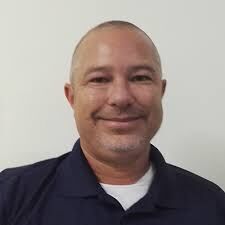Rehabilitation before incarceration
I have read in the news lately that there is a common sentiment that people with mental health needs here in the CNMI need to go to jail for causing a nuisance in the community. I for one do not believe that this is the correct course of action to take for these individuals.
Just because a person walks down the street talking to themselves doesn’t mean they are doing something different that anyone else does. Look at the people who talk on their phones on speaker in restaurants or in stores. To me they are also creating a nuisance and disturbing the peace, but everyone acts as if that is the “normal” thing to do and they are not arrested.
There was a program on PBS about 20 years ago called The New Asylums in which jails and prisons across the nation saw an increase in the number of incarcerated individuals diagnosed (or undiagnosed) with mental illness. Many of the individuals that entered the criminal justice system did so because the treatment services were better than what was available in their communities. Here in the CNMI, I would argue it is the opposite. While there are few programs in corrections designed to assist individuals with mental health needs, there is in fact a need for more support in the community to address the rise in mental health diagnoses.
Whenever I have encounters with people asking me for money, I simply tell them, “No” and they leave me alone. Several who approach me I have known for years and I am aware they have a mental health diagnosis, but others are able-bodied and competent. Now, I do agree that, when individuals commit crimes, they should be held responsible for them. All I’m asking for is appropriate rehabilitation for their illness, before we rehabilitate them for their crime.
We have seen an increase in available services for individuals who struggle with substance use and even mental health (i.e., drug court and mental health court), but to avail of these programs one must first commit a crime. If we examine these programs closely, they are designed to keep individuals out of correctional institutions. The CNMI should be looking for increased funding to support community living for people with mental health needs, rather than throwing them in jail.
There was a follow up to The New Asylums called The Released that addressed what happens when individuals are released from a correctional institution: they tend to continue their behaviors while on the outside and wind up back in the system. Again, here in the CNMI the Department of Corrections is not the appropriate place for providing treatment.
The Northern Marianas Protection & Advocacy Systems, Inc fights for the rights of individuals with disabilities, including those with mental health needs, to ensure they are recognized as having the same rights as any other person. NMPASI nurtures an atmosphere of treating people with dignity and respect, that includes when they are involved in the criminal justice system or in the community.
For more information about the PBS documentaries, please visit:
• https://www.pbs.org/wgbh/frontline/documentary/showsasylums/
• https://www.pbs.org/wgbh/frontline/documentary/released/
For more information on your rights as a person with a mental health diagnosis, contact the Protection & Advocacy for Individuals with Mental Illness (PAIMI) program at NMPASI at (670) 235-7273, visit us online at www.nmpasi.org, or visit us at the Marianas Business Plaza-Room 505.

Greg Borja is the executive director of the Northern Marianas Protection & Advocacy Systems, Inc.




